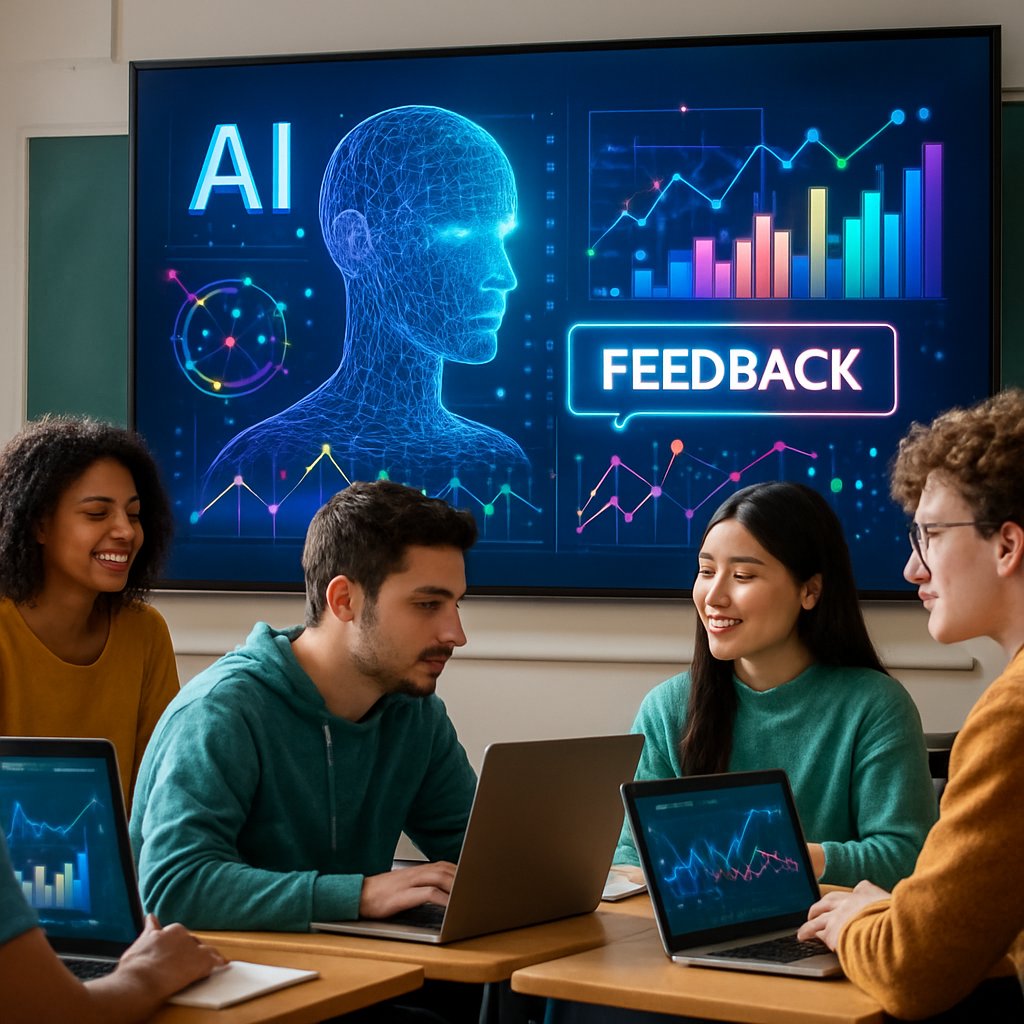Revolutionizing Student Feedback: How AI is Personalizing Learning for Computer Science Students
In today’s fast-paced world, education is continually evolving, driven by new technologies and innovative methods. Among these advancements, personalized feedback stands out as a game changer, especially in the realm of computer science. We live in a time where large classrooms and diverse student needs can make individual feedback seem like a daunting task. But what if there was a way to streamline this process using Artificial Intelligence? A recent study by researchers from the University of Hertfordshire and other institutions explores this idea, leveraging Large Language Models (LLMs) like ChatGPT to enhance the feedback process for computer science students. Let’s dive in and see how this unfolds!
The Need for Personalized Feedback
Think of personalized feedback as the GPS for a learner's educational journey. Just as GPS helps you navigate by offering directions in real-time, personalized feedback guides students on where they excel and where improvement is needed. Unfortunately, providing constructive and individualized feedback, especially in large classrooms, can be challenging for educators. Many students end up receiving generic comments that offer little insights into their individual performance, leaving them unsure of how to progress.
Why does this matter? Research has shown that timely and constructive feedback significantly boosts student learning and motivation. Insights that help students understand their gaps can lead to improved performance, more confidence, and a better educational experience overall. Enter the era of AI!
Harnessing the Power of LLMs for Feedback
So, what exactly are these Large Language Models (LLMs) like ChatGPT, and how do they fit into the education space?
What are LLMs?
Large Language Models are advanced AI systems trained on vast amounts of text data to understand, generate, and analyze human language. They can perform a variety of tasks, including writing essays, answering questions, and, as we’re getting to know in this context, providing personalized feedback for educational purposes.
The LLM-MATE Approach
In this groundbreaking research, the LLM-MATE (Large Language Model for Marking Assessments, Tracking and Evaluation) model introduces a systematic way to harness the potential of LLMs for constructive feedback.
Data Collection: Researchers gathered anonymous student submissions from the Software Architecture module, which included essays, programming tasks, and diagrams. This diversified data set makes it ideal for evaluating various types of student output.
Prompt Engineering: This is about crafting well-structured queries that guide LLMs to produce meaningful and accurate feedback. Think of it as asking the right questions to get the best answers.
Assessment Evaluation: By integrating predefined rubrics—criteria that outline how student submissions should be scored—the researchers fed student work into ChatGPT. The AI then generated tailored feedback detailing each submission’s strengths and areas for improvement.
Validation Process: To ensure accuracy, the AI-generated feedback was validated by human experts who compared it against their assessments. This helps mitigate issues such as AI “hallucination,” or when the AI produces answers that sound good but are factually inaccurate or irrelevant.
Real-World Applications: Benefits to Students and Educators
Imagine it: you’re a student working late on your project, and you hit 'submit'. Unlike traditional feedback that takes days or weeks to return, with the LLM-MATE system, you could receive constructive insights almost immediately. Not only does this help identify areas for improvement, but it keeps the learning momentum going.
For Educators:
- Efficiency: Automating the feedback process lets educators focus more on teaching rather than spending hours grading assessments.
- Consistency: Using standardized rubrics ensures uniform feedback across large cohorts, reducing discrepancies in grading between different instructors.
- Data-Driven Decisions: The insights gathered from student feedback can inform future teaching strategies and curriculum design, making education more effective.
Key Findings from the Study
The research showcased several interesting outcomes:
- Positive Feedback Generation: ChatGPT provided personalized, constructive feedback that was often more detailed than typical instructor comments and helped guide students effectively.
- High Confidence Among Educators: Teachers involved in the assessment process expressed high confidence in the AI's feedback capabilities, believing it to be reliable and beneficial for students.
- Room for Improvement: While the results are promising, the study highlighted certain challenges, including the need for better pre-defined rubrics and the ongoing risk of "hallucinations" in AI suggestions.
Looking Ahead: The Future of AI in Education
So, where do we go from here? The potential for AI in education is vast. Here are some areas primarily focused on in future works:
Expanded Domains: While the initial focus was on software architecture, the LLM-MATE approach can be applied across various subjects and educational levels.
Improvement Techniques: Researchers plan to explore methods like few-shot learning and chain-of-thought prompting, which can enhance the AI’s reasoning abilities and improve its feedback quality.
Integrating Learner Dispositions: Moving forward, incorporating personality traits and emotional assessments could allow for even more tailored and effective feedback that resonates with individual learning styles.
Automation for the Future: As the technology evolves, fully automating this feedback process could be on the horizon, making immediate, constructive feedback the norm rather than the exception.
Key Takeaways
- Personalized Feedback is Essential: Feedback helps steer students on their learning journeys, making personalization crucial for growth.
- AI Can Revolutionize Education: LLMs like ChatGPT can provide timely, constructive, and personalized feedback, drastically improving how students learn and grow.
- The Future is Bright: Ongoing research and testing will further optimize the use of AI in feedback, making it a staple in educational settings.
As we incorporate more AI into our educational systems, it is essential to remember the ultimate goal: fostering a learning environment that inspires students and helps them reach their full potential. With advancements like LLM-MATE paving the way, the future of personalized learning looks incredibly promising!

